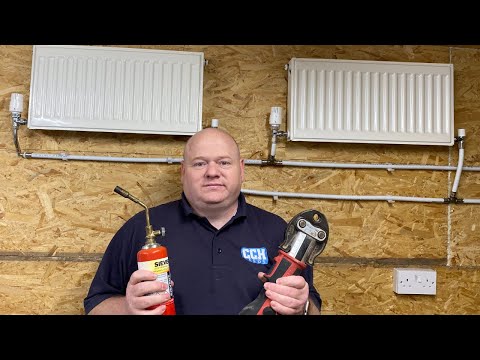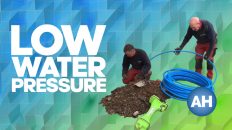Plumber training. Should I become a plumber? Should I retrain as a plumber? These are questions I keep getting asked over and over again. So, I thought I’d put a video together for you and try and answer as many of them questions as I can.
My name is Allen Hart and I’ve been a plumber now for 30 years and yes, a long time. And over the years, I’ve had lots of people work with me. In the days when I used to work for British Gas, I used to get a lot of the new trainees and they used to come and work with me for a little while before they used to go out by their self. And also since having my own business, I also let a lot of other people contact me. I get loads and loads of people. I mean, I’ve had six people this week contact me, asking me if they can come and work with me. So, I get lots of people that want to come and work with me. And I want to just try and answer some of the questions before you spend a big bag of money going on these training courses and things like that.
So, just to try and see if this job is right for you and what you’re going to do after, if you do qualify, what you’re going to do. Are you going to get a job? Are you going to go self-employed? If you go self-employed, how much are you going to charge, the cost involved in getting vans and insurances and all things like that. So, I just wanted to go through as much of that information in this video as possible. Just to try and give you a bit of knowledge before you take a plunge. Well, that cheesy or what? I’m going to put some notes, I’m going to write some notes down here. Let’s have a look.
Try before you buy. So what I’d advise first of all, before you do anything else, is go try out being a plumber. So, see if there’s anybody local that you can go and do some labouring, some free labouring and see if that type of work suits you and if you like to get your hands mucky, and if you like to do lifting floor boards up and things like that. So, as I say, try before you buy. Before you invest all your time and invest all your money in training. The last thing you’d want to do is if you… Even as an apprentice, you wouldn’t want to go and spend two years, three years, I don’t know how long the apprenticeship is these days, but you wouldn’t want to spend all that time and then after you’ve done all that, realise that it’s not actually the job for you.
And same if you’re retraining. Maybe you’re in the army or something like that now and you want to do plumbing. Try and, if you can, go and work with somebody, even if you’ve got to go work for free. Go and offer to work with some of the labour for free for a few weeks and just make sure that it’s the right job for you.
So, now you’ve decided, after you’ve done your research, that you want to be plumber and there’s different options for you to train to be a plumber. So, you could do an apprenticeship. And we’ll talk a little bit about that first. And then we’ll talk about your older style, retrainee type route. We’ll talk about that as well. So normally, as an apprentice, you do an apprenticeship when you’re 16, 17 sort of age. I’m not sure if there’s an age limit on it these days, there might not be with all these age discrimination acts and things like that. So, there might not be, I’m not sure. You’d have to speak to your local college or speak to a local employer and see if you could do an apprenticeship. The benefits of doing an apprenticeship and working for somebody at the same time, obviously you’re going to get paid as you go.
You’re also going to get knowledge from the training in college, but also on the job as well. You’re going to get a recognised qualification. So, you’re going to get an apprenticeship. You’ll receive or you could receive government funding as well. Apprenticeships. So, that’s a little bit about apprenticeships and that’s the route that I took when I came into the industry. My first job I worked as a plumber and I sent out, in those days, I sent out letters to lots and lots of companies, and eventually I got a job. And then I went to college and I did my apprenticeship. And that’s how I got into the trade. Now, the other option is if you want to retrain, if you want to be what some people call a fast tracker and there’s different options with that as well. With a fast tracking route, I wanted to ask you, look into what you’re going to do. So, if you’re going to do the fast tracking route, once you’re qualified, what’s your plans? Are you wanting to get a job? Are you wanting to go self-employed? So, I want to look more into that as well with the fast track route, but we’ll have a look at fast track now. Viva Training Academy
Video







